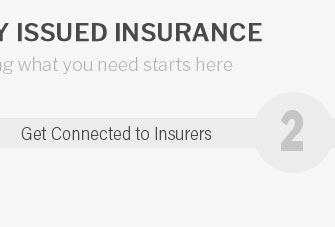 |
 |
 |
|---|
 |
 |
 |
 |
|---|
 |
 |
 |
 |
 |
 |
|---|

Understanding Virginia Auto Insurance: A Comprehensive OverviewVirginia, a state renowned for its rich history and picturesque landscapes, requires its drivers to be well-versed in the nuances of auto insurance. Navigating the intricate world of car insurance can be daunting, but understanding the essentials can make this task considerably more manageable. At its core, Virginia mandates a certain level of coverage, ensuring that all drivers on its roads are adequately protected. This article aims to provide an insightful look into the requirements, options, and strategies for managing auto insurance effectively in Virginia. First and foremost, it's important to acknowledge that Virginia operates as an 'at-fault' state, meaning that the party responsible for an accident is also financially liable for any damages incurred. Therefore, maintaining adequate insurance coverage isn't just a legal requirement; it's a financial safeguard. The minimum coverage requirements in Virginia are commonly abbreviated as 25/50/20. This translates to $25,000 for bodily injury per person, $50,000 for total bodily injury per accident, and $20,000 for property damage. While these figures represent the minimum, they may not always suffice in the event of a serious accident, which is why many experts recommend opting for higher coverage limits to better protect oneself financially. Beyond the minimums, Virginia offers a myriad of options that cater to diverse needs and preferences. For instance, drivers may consider comprehensive and collision coverage, which protect against a wider array of incidents such as theft, vandalism, and weather-related damage. Additionally, uninsured and underinsured motorist coverage is particularly advisable, given that not all drivers adhere to the insurance requirements. This type of coverage provides an extra layer of security should one encounter a driver without sufficient insurance. When shopping for auto insurance in Virginia, several factors can influence premium costs. Driving history, vehicle type, age, and even credit score are pivotal elements that insurers assess. It's beneficial for drivers to regularly review and, if possible, improve these aspects to obtain more favorable insurance rates. Moreover, comparing quotes from multiple providers can yield significant savings, as rates can vary widely across companies. While cost is undoubtedly a critical factor, the quality of customer service and claims processing should not be overlooked. Choosing an insurer with a reputation for excellent customer service can make a substantial difference in the overall experience, especially during the stressful aftermath of an accident. Online reviews, ratings from independent agencies, and word-of-mouth recommendations are invaluable resources in identifying reliable insurance providers. In conclusion, understanding the landscape of auto insurance in Virginia involves more than merely meeting state-mandated minimums. A well-rounded approach considers the benefits of additional coverage options, the impact of personal factors on premiums, and the importance of selecting a reputable insurer. While navigating this field may initially seem overwhelming, being informed empowers drivers to make decisions that best protect their financial well-being and peace of mind. As Virginia's roads continue to connect its residents and visitors alike, ensuring proper coverage remains a fundamental aspect of responsible driving. https://www.libertymutual.com/vehicle/auto-insurance/state/virginia
Liberty Mutual can help you save on car insurance! From Liability Protection to Comprehensive Coverage, we've got you covered. https://www.nationwide.com/personal/insurance/auto/state/virginia/
Nationwide makes it easy for you to find dependable auto insurance in Virginia. We can show you options so you can choose the coverage that's right for your ... https://www.vafb.com/insurance/auto
Our local agents will walk you through your coverage options, from the very basic to the highest degree, so you can find affordable auto insurance that makes ...
|
|---|